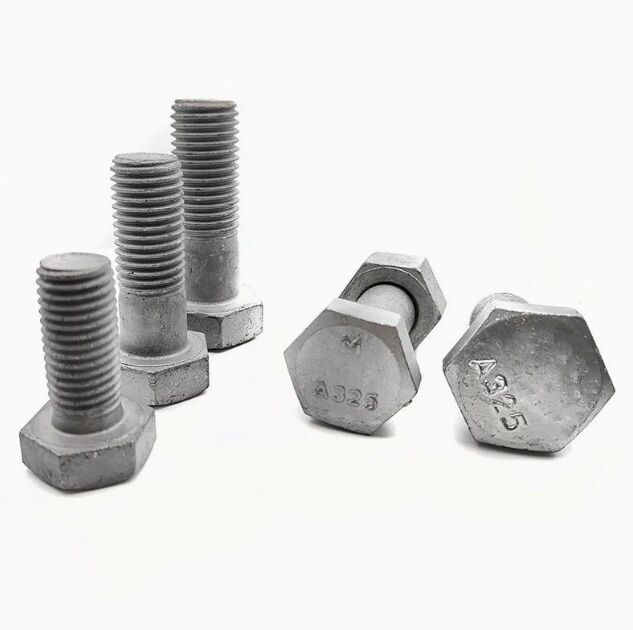Înțelegerea bulonilor personalizați și a aplicațiilor acestora
Ce face fixatorii personalizați speciali?
#Istorie 10 Motive pentru a utiliza fixaouri personalizate Fixaouri personalizate - Folosiți-le Fixaourile personalizate sunt speciale deoarece sunt fabricate pentru a satisface nevoi specifice pe care alte fixaouri standard nu le pot îndeplini - fie că sunt mai eficiente, mai durabile sau chiar mai ieftine de utilizat. Toate acestea sunt proiecte proprietare, necesitând toleranțe diferite în fabricație, standarde de fire și revărsuri, pentru a fi folosite în aplicații care necesită o capacitate de sarcină crescută sau compatibilitate cu medii corozive sau umede. Deoarece sunt modelate și apoi machinate, fixaourile personalizate pot fi fabricate într-o varietate largă de dimensiuni, iar gama de materiale pentru acestea este la fel de vastă, făcându-le o soluție perfectă atunci când operațiunile dvs. necesită ceva mai specializat decât fixaourile standard.
Industriile cheie care se bazează pe fixatoare adaptate
Fixări personalizate Multe industrii depind de fixări personalizate pentru a îmbunătăți performanța și siguranța produselor lor. Printre aceste sectoare se numără aerospațial, automotive și construcții, care necesită fixări capabile să reziste celor mai dure condiții. Dependență Fixările metalice sunt ieftine de produs și de cumpărat și sunt relativ ușoare de instalat. Articole recente din Fastener Technology International subliniază prezența în creștere a fixărilor personalizate în industria apărării și a fabricației, demonstrând importanța lor. Această caracteristică este esențială pentru aplicații sensibile precum electronica și mașinăria grea, care necesită precizie și durabilitate.
U-Bolts în sectoarele de construcții și automotive
U-bolts sunt utilizate în mod frecvent în diferitele ramuri ale industriei de construcții și a industriei automobile din cauza formei lor caracteristice, care rezistă desprinderii tuburilor sau barelor de oțel pe care le susțin. Aceste elemente de fixare sunt concepute pentru a rezista condițiilor grele găsite în aceste industrii exigente - incarcări ridicate și expoziție la substanțe chimice care pot afecta sistemele mai slabe. Respectarea acestor tendințe duce la dezvoltarea unui U-bolt personalizat, adaptat să îndeplinească condițiile dimensionale și materiale precise, ceea ce provoacă o îmbunătățire tremendousă a siguranței și performanței.
Avantajele fixantelor personalizate față de opțiunile standard
Inginerie de precizie pentru specificații unice
Fixările personalizate sunt fabricate conform specificațiilor producătorului și sunt deja proiectate conform specificațiilor F.I.M., ceea ce permite un montaj perfect și o performanță optimă. Acuratețea în fabricație asigură un ajustament de calitate, reducând problemele de instalare și nevoile de serviciu și întreținere pe termen lung, cu scopul de a crește eficiența sistemului. Figura 20 susține că fixările pot fi aplicate corect în funcționare conform datelor statistice, iar durata de viață și fiabilitatea mașinilor și produselor poate fi îmbunătățită într-o anumită măsură, ceea ce permite o performanță și o fiabilitate mai bune.
Versatilitate Material: De la Oțel Inoxidabil până la Aleaje Exotice
Fixari personalizate sunt disponibile într-o varietate largă de materiale, de la oțel inoxidabil rezistent la coroziune până la alegeri exotice, aliaje îndurate în condiții extreme de temperatură ridicată. Ele pot rezista la căldură extremă, rece sau probleme de coroziune, ceea ce este important în industrie precum aeronautică și petrol-gaz. Studiile comparative demonstrează îmbunătățirile durabilității materialelor personalizate în fața condițiilor severe. Selecția simplă a materialelor asigură că fixările personalizate funcționează mai bine decât așteptările pentru a rezolva atât problemele functionale cât și cele legate de mediu.
Durabilitate în Medii Extreme
[0161] Utilizarea fixaouri personalizate asigură că proiectul va fi sigur și de încredere chiar și în cele mai severe condiții de funcionare, cum ar fi temperaturi extreme și medii corozive. În industria critică, sunt înregistrate mai puține eșecuri cu fixaouri personalizate decât cu cele standard. Rezultatele cercetării subliniază performanța superioară în industrii precum aerospațialul și fabricarea în industria grea, care necesită ca fixaourile să reziste presiunilor și extremelor de temperatură pe perioade mari. Aceste fixaouri sunt componente esențiale pentru a asigura integritatea și siguranța oricăror aplicații industriale complexe.
Selectarea Materialelor pentru Personalizare Bolt Producție
Oțel Inoxidabil: Rezistență la Coroziune și Putere
Oțel inoxidabil O gamă largă de aplicații potențiale datorită excepționalei sale rezistențe la coroziune, precum și proprietăților mecanice favorabile, pernii personalizate sunt de obicei fabricate din oțel inoxidabil. Aceste caracteristici permit pernelor din oțel inoxidabil să fie eficiente într-o varietate de aplicații, de la marine la agricultură. Deși pernile din oțel inoxidabil pot fi mai scumpe decât cele din oțel pe baza costului individual, când se ia în considerare costul total al întreținerii, ele devin foarte economice.
Opțiuni din Oțel Carbon și Aleaje pentru Utilizare Greavă
Pernele personalizate din carbon sunt o alegere perfectă pentru aplicații grele, deoarece sunt puternice și durabile. Opțiunile de aliaje subliniază aceste caracteristici, inclusiv performanța în medii mai agresive. Această opțiune păstrează integritatea structurală în domeniile construcțiilor și automotive. Rezultatele sondajelor leagă niveluri ridicate de satisfacție de pernile personalizate din oțel carbon, oferind alte dovezi privind popularitatea lor în aceste industrii.
Materiale Specializate pentru Aplicații Specifiche
Anumite industrii necesită materiale avansate pentru fixaouri, cum ar fi titanul și compozitele, care oferă avantaje unice precum ușoarețea și rezistența - esențiale în aplicațiile aeronautice. Tendințele industriale arată o dependență crescută de materiale specializate, reflectând cererea de fixaouri personalizate inovatoare pe piațe de nicșă, abordând cerințele stricte ale sectorului.
Procesul de Fabricație a Șuruburilor Personalizate
Faza de Proiectare: Traducerea Specificațiilor în Planuri
Procesul de fabricație a șurubelor personalizate începe prin traducerea specificațiilor în planuri detaliate cu software CAD avansat, asigurând precizie și conformitate cu toleranțe. Acest lucru facilitează realizarea conceptelor complexe cu acuratețe pentru proiecte fabricabile. Abordările colaborative între ingineri și producători optimizesc performanța și eficiența, adaptând proiectele la nevoile specifice ale aplicațiilor.
Tehnici de umflare și îmbunătățiri
Tehnicile de umflare și îmbunătățiri îmbunătățesc funcționalitatea și durabilitatea șurubelor personalizate. Umflarea se potrivește cu aplicațiile specifice care influențează performanța șurubului, în timp ce stratificări precum cele anti-corozive prelungesc durata de viață și mențin performanța în diferite medii. Evaluările arată că combinațiile corecte de umflare și stratificări îmbunătățesc capacitatea de sarcini și rezistența, răspundând cerințelor utilizării industriale.
Asigurarea calității și testarea conformității
Procesele de asigurare a calității confirmă că buloanele personalizate îndeplinesc standardele industriale înainte de lansare pe piață. Testele comprehensive acoperă integritatea materialului și performanța la stres, asigurând funcționarea sub condiții variate. Certificările precum ISO 9001 validează gestionarea calității și răsfoară clienții cu privire la standarde ridicate de fabricație.
Aplicații ale Bulonilor Personalizate în Diverse Industrii
Fixare a Echipamentelor din Agricol și Silvic
Fixatorii personalizați sunt esențiali pentru robustețea echipamentelor agricole și silvice, rezistând stresului mecanic și expunerii mediului, cum ar fi umiditatea. Studiile de teren arată că există mai puține eșecuri ale echipamentelor cu soluții personalizate, sporind eficiența și performanța durabilă în condiții dificile.
Proiecte de Infrastructură: Poduri și Oțel Structural
Proiectele de infrastructură se bazează pe bolți personalizate ingineriate pentru presiuni și stresuri în construcții. Soluțiile adaptate prelungesc durabilitatea și reduc întreținerea, optimizând fiabilitatea și siguranța structurilor, crucială în mediile cu sarcini variabile.
Sisteme de Științe ale Uleiului, Gazei și Energiei Regenerabile
Elementele de fixare personalizate sunt esențiale pentru siguranță și eficiență în sectoarele de petrol, gaz și energie regenerabilă, expuse temperaturilor și presiunilor extreme. Elementele de fixare adaptate se corelează cu o fiabilitate îmbunătățită a sistemelor energetice, prelungind performanța și operarea fără probleme.
Secțiunea FAQ
Ce se folosesc elementele de fixare personalizate?
Elementele de fixare personalizate se folosesc pentru a satisface cerințele specifice în aplicații în care opțiunile standard nu sunt suficiente, oferind o rezistență sporită la încărcări și la coroziune.
De ce sunt preferați fixatori personalizați în industria critică?
Oferează o precizie ridicată, versatilitate materială și durabilitate sub condiții extreme, esențiale pentru fiabilitate și siguranță în sectoare precum aerospațial și construcții.
Cum îmbunătățesc fixatorii personalizați performanța echipamentelor?
Fiind ingineriate cu precizie, acestea oferă o potrivire perfectă și minimizează întreținerea, îmbunătățind durata de viață a echipamentelor și eficiența operațională.
Cuprins
-
Înțelegerea bulonilor personalizați și a aplicațiilor acestora
- Ce face fixatorii personalizați speciali?
- Industriile cheie care se bazează pe fixatoare adaptate
- U-Bolts în sectoarele de construcții și automotive
- Avantajele fixantelor personalizate față de opțiunile standard
- Inginerie de precizie pentru specificații unice
- Versatilitate Material: De la Oțel Inoxidabil până la Aleaje Exotice
- Durabilitate în Medii Extreme
- Selectarea Materialelor pentru Personalizare Bolt Producție
- Oțel Inoxidabil: Rezistență la Coroziune și Putere
- Opțiuni din Oțel Carbon și Aleaje pentru Utilizare Greavă
- Materiale Specializate pentru Aplicații Specifiche
- Procesul de Fabricație a Șuruburilor Personalizate
- Faza de Proiectare: Traducerea Specificațiilor în Planuri
- Tehnici de umflare și îmbunătățiri
- Asigurarea calității și testarea conformității
- Aplicații ale Bulonilor Personalizate în Diverse Industrii
- Fixare a Echipamentelor din Agricol și Silvic
- Proiecte de Infrastructură: Poduri și Oțel Structural
- Sisteme de Științe ale Uleiului, Gazei și Energiei Regenerabile
- Secțiunea FAQ
- Ce se folosesc elementele de fixare personalizate?
- De ce sunt preferați fixatori personalizați în industria critică?
- Cum îmbunătățesc fixatorii personalizați performanța echipamentelor?

